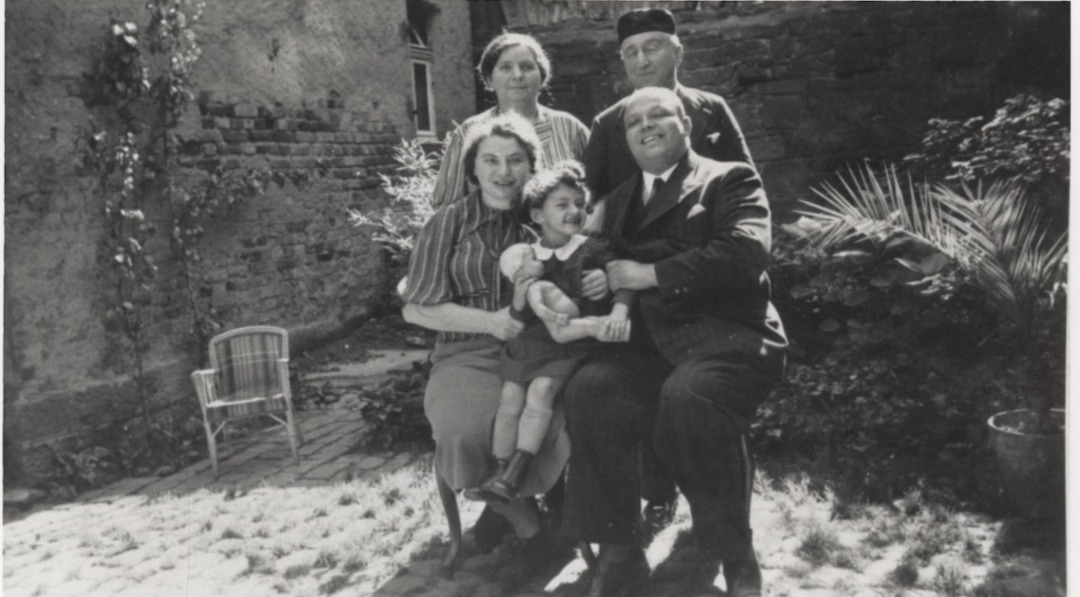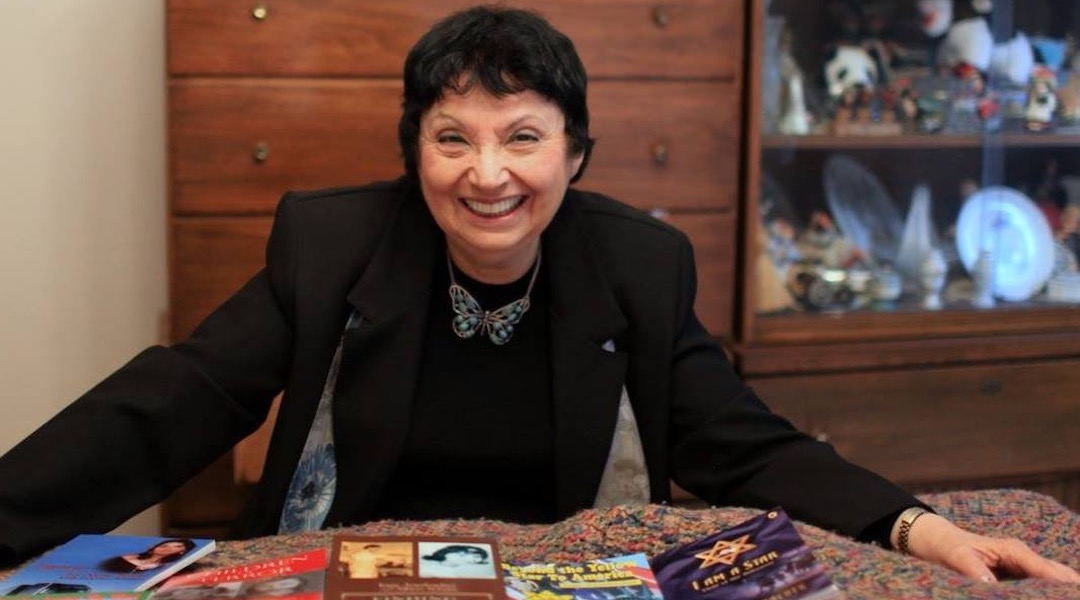(New York Jewish Week via JTA) — Inge Auerbacher survived the Holocaust as a child and has devoted much of her life to speaking about her experiences and the need for tolerance in the world.
She has commanded prominent stages: Three years ago, she marked International Holocaust Remembrance Day with an address to the United Nations.
This month, she will return to Germany for the international commemoration on Jan. 27 as the keynote speaker at the German Bundestag.
“They are both amazing places to speak at,” she told the New York Jewish Week in an interview from her home in Jamaica, Queens. “It is truly a great honor. My remarks at the U.N. were heard throughout the world. My friend in Sicily watched it live. … They are both enormous events and I am honored to have been asked to speak.”
Auerbacher, 87, said she’ll be seated when she delivers her 20-minute address to the Bundestag, Germany’s federal parliament. She acknowledges that she’s taking a chance to travel there because of COVID-19, “but this is a once in a lifetime opportunity,” she said. “You take your chances in life and this is very important to me. … A lady from the Shoah Foundation will be driving me from place to place, so I won’t have to go on public transportation.”
Asked about her remarks, Auerbacher said: “I’m not going to scream, ‘You murderers,’ which some are. Instead, I will deliver my message in German and say that hatred against a people is terrible and that we are born as brothers and sisters and should live together.”
“I will speak from my heart, point to the audience and say there should be no more antisemitism in Germany,” she added. “I don’t want antisemitism and hatred against anybody. I come as a peacemaker.”
Germany in recent years has seen a rise in antisemitic hate crimes, including the Halle shooting in 2019, in which a gunman blocked from entering a synagogue on Yom Kippur instead shot and killed two passersby and wounded two others. A study that year found that more than a quarter of Germans hold antisemitic views. The number of antisemitic incidents rose steadily through 2020.
Since 1996, Holocaust survivors and world leaders — including Elie Wiesel and Israeli President Shimon Peres — have been invited to address the Bundestag on Jan. 27, the anniversary of the day when the Auschwitz extermination camp was liberated by Soviet troops in 1945.
Auerbacher said she plans to speak about how well Jews were integrated into German society prior to World War II, having lived there for more than 1,700 years. She noted a street was named after one of her relatives, Moses Baruch Auerbacher (known as Berthold Auerbach), a 19th-century German Jewish poet and writer.
“My father was a disabled war veteran, having been wounded in World War I,” she said. “Because of his wounds, he was unable to lift his right arm and he received the Iron Cross. … We were very integrated into society. My grandmother was one of 14 children and she had four brothers, two of whom gave their lives to the Fatherland in World War I.”
Still, Auerbacher said she doesn’t want to speak just about herself when she addresses the Bundestag. Rather, hopes to use her personal story to illustrate what happened to Jews in Germany.

Inge Auerbacher with her parents and grandparents in 1938. (Courtesy)
Auerbacher was born in an 18-room house that had two maids in Kippenheim, a village with about 60 Jewish families in southwest Germany. Her father was a textile merchant. Her mother’s parents lived about 125 miles away in Jebenhausen, which during the mid-1800s was 40 percent Jewish.
During the Kristallnacht pogrom on Nov. 10, 1938, her father was arrested and sent to a concentration camp. He was released a few weeks later and her parents quickly sold their home and moved in with her mother’s parents.
“My mother had a brother in the United States,” she said. “He tried [and failed] to get us out.”
Nazi restrictions made life difficult for the family and Auerbacher was told she could no longer attend the local public school. At the age of 6, she had to attend a Jewish school in Stuttgart. She and other Jews were forced to wear the Star of David and she recalls being taunted by some children.
Her grandmother was deported to Latvia in 1941 (her grandfather had already died), her house was confiscated and Auerbacher and her parents were forced to move into a house with other Jews. After six months they were deported to the Theresienstadt ghetto-concentration camp.
“They [the Nazis] took away my brooch before the deportation, saying, ‘You won’t need this where you are going,’” Auerbacher recalled. “I was 7 years old, the youngest in the transport of around 1,100 Jews.”
They were allowed to stay in the disabled war veterans’ section until the camp was liberated by Soviet troops in May, 1945.
The three were then sent to a displaced person’s camp. Later, they were allowed to return to her grandparent’s house and her father resumed his business. On June 17, 1946, with the help of the American Jewish Joint Distribution Committee, they boarded the SS Marine Perch with 864 others. It was the second immigrant ship to transport refugees to the United States.
“We went to my aunt and uncle in Rockville Centre, Long Island, and my mother then got a job as a cook and maid and my father worked as a butler,” Auerbacher said.
She herself had contracted tuberculosis in Theresienstadt and spent four years in bed until the development of streptomycin, an antibiotic that treated tuberculosis and other bacterial infections.
Auerbacher started high school at the age of 15 and graduated college in 1958. She pursued a career as a chemist, working in medical research and clinical work for 38 years. Over the past 30 years she has written six books, four about her experiences during the Holocaust, including “I’m A Star: Child of the Holocaust.”
“I have spoken frequently in schools and other venues in the United States and throughout the world about my experiences during the Holocaust and about the importance of tolerance,” she said. “I also co-wrote a song for the first World Gathering of Jewish Holocaust Survivors in 1981, ‘We Shall Never Forget.'”
In recognition of her body of work and witness-bearing, she has been honored by Germany and received two honorary doctorates. After her address to the Bundestag, Auerbacher said she plans to visit her hometown and her grandparents’ hometown before visiting the town of Goeppingen, which plans to make her an honorary citizen for the years she has spoken there to students and community groups.
The New York Jewish Week brings you the stories behind the headlines, keeping you connected to Jewish life in New York. Help sustain the reporting you trust by donating today.





